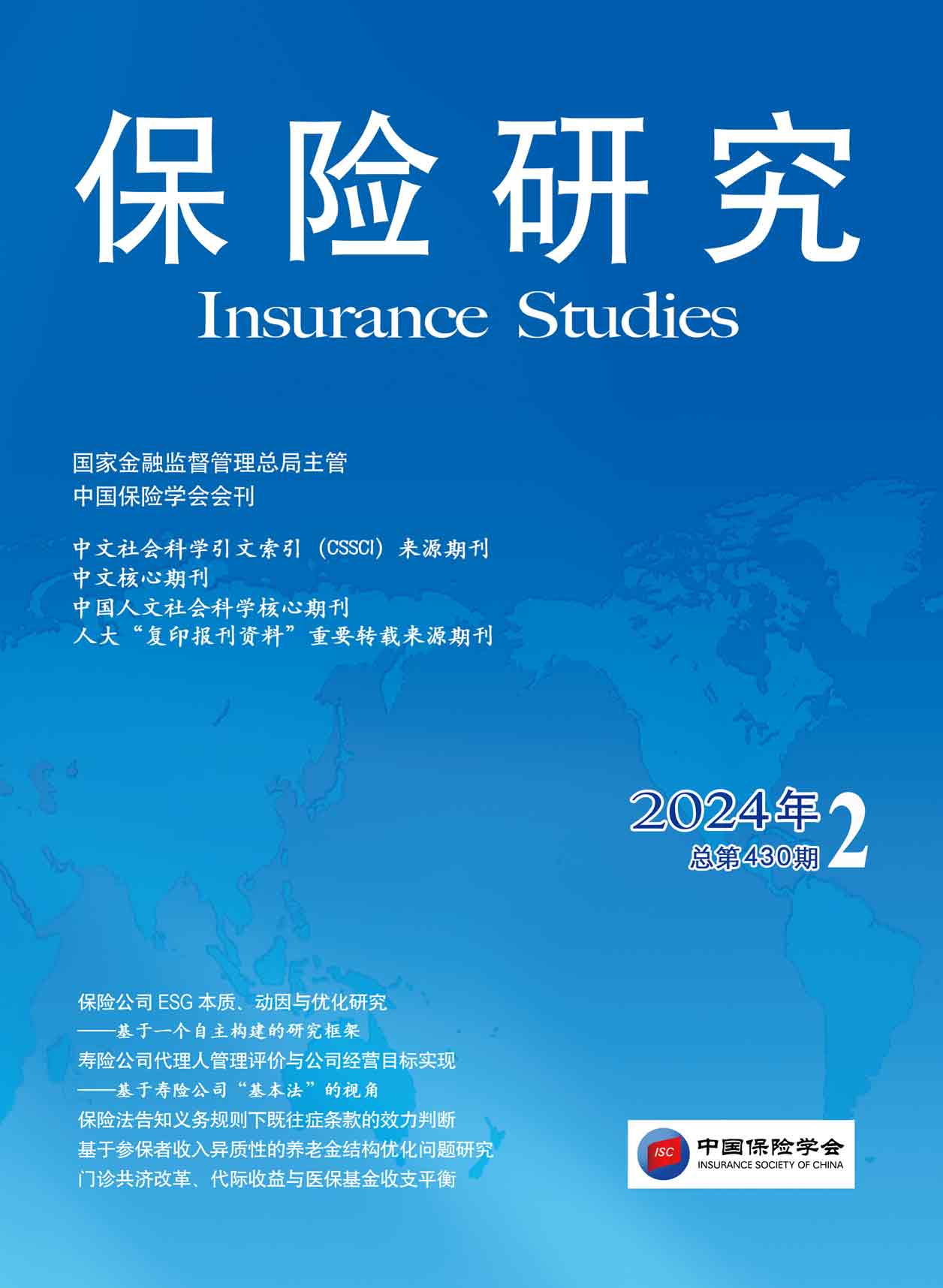
《保险研究》20240206-《保险法告知义务规则下既往症条款的效力判断》(王家骏)
[中图分类号]D922.284[文献标识码]A[文章编号]1004-3306(2024)02-0071-10 DOI:10.13497/j.cnki.is.2024.02.006
资源价格:30积分
- 内容介绍
[摘 要]作为商业健康保险中最常见的条款之一,既往症条款产生了较告知义务规则更为严苛的效果,受到了国内理论研究、司法裁判和监管态度上的较多否定。但现有观点以及比较法上的讨论均无法完全反驳关于既往症条款“保障范围”“客观主义”等性质定位,也引起了对保前症状的解释方式争议。追溯适用历史可以发现,起源于团体保险的既往症条款最初系通过确定保障范围实现“尽量接纳成员”的目的,但在适用于个人保险后产生了向“防范逆向选择”的变迁。在适用告知义务规则判断既往症条款效力时,应基于《民法典》对违反强制性规范法律行为效力的理论发展,在目的比较下对团体保险和个人保险中的既往症条款作出不同评价,并对保前症状的解释适用不同标准。
[关键词]既往症条款;告知义务规则;相对强制性规范;团体保险;目的比较
[作者简介]王家骏,中国政法大学博士后研究人员,研究方向:保险法、侵权法。
The Validity of the Pre-existing Condition Clause under the Obligation of Disclosure of the Insurance Law
WANG Jia-jun
Abstract:As one of the most common clauses in commercial health insurance,the pre-existing condition clause has a more stringent effect on the disclosure obligation rule,thus it is widely criticized by the judicial and theoretical societies and regulatory bodies.However,current opinions and comparative law-based discussions cannot completely disprove the pre-existing condition′s provisions on “scope of coverage” and “objectivism”.This has also given rise to the controversy over the interpretation of the pre-existing condition clause.Tracing back the history of this clause′s application,we can see that it first originated in group insurance,aiming to realize the goal of “accepting membership to the largest extent”.However,when it was applied to individual insurance,this clause shifted to “prevent against adverse selection”.When judging on the validity of the pre-existing condition clause when the rule of disclosure obligation is applied,we should follow the Civil Code′s theoretical development on the validity of legal actions which violate mandatory regulations.Moreover,we should make differentiated assessment on the pre-existing condition clause for group insurance and individual insurance with the comparison of their different purposes,and apply different standards to the interpretation of pre-existing conditions.
Key words:pre-existing condition clause;duty of disclosure;relative mandatory rules;group insurance;objective comparison
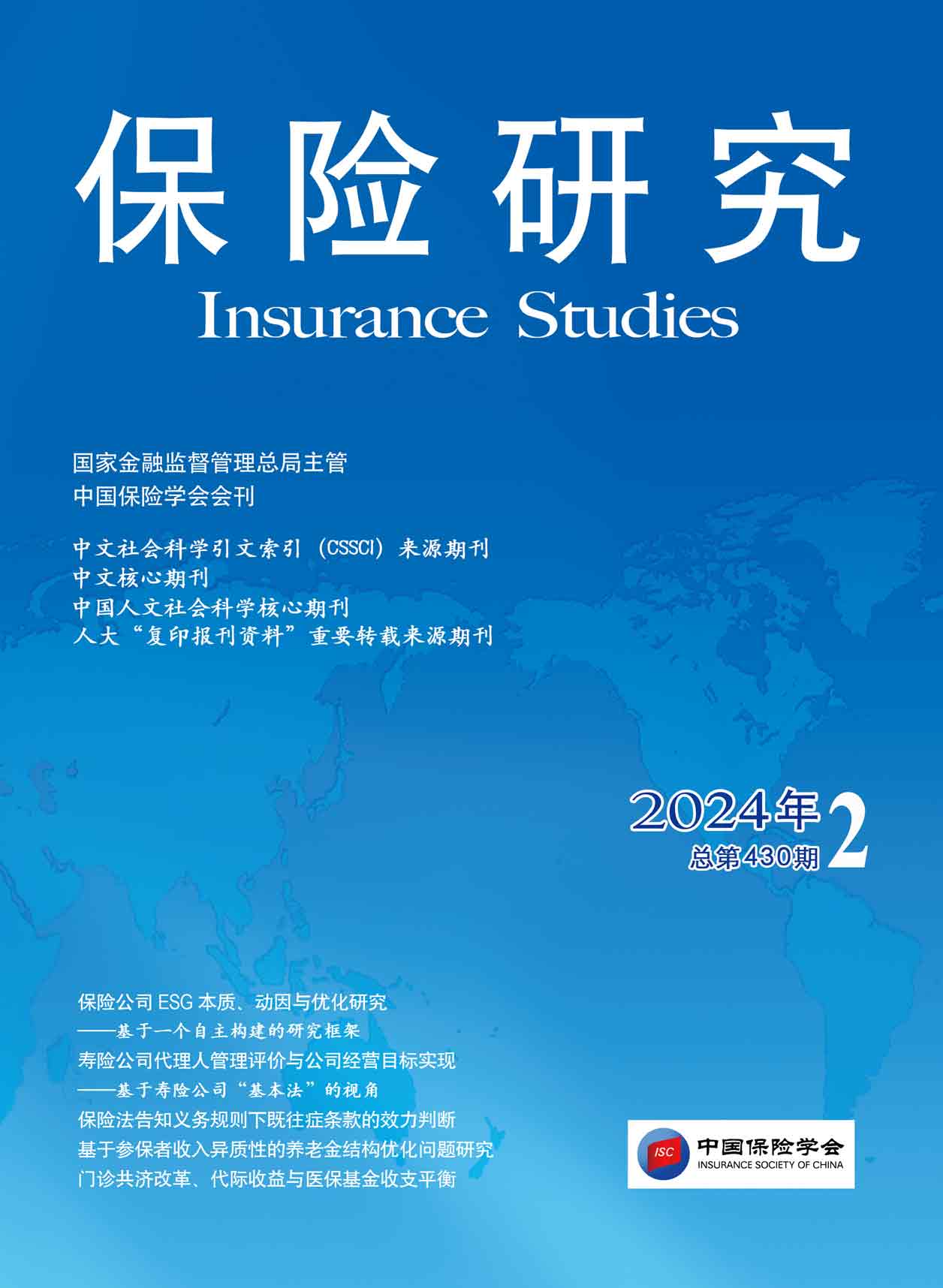
《保险研究》20240201-《保险公司ESG本质、动因与优化研究——基于一个自主构建的研究框架》(郝臣、李维安、董迎秋、马贵军)
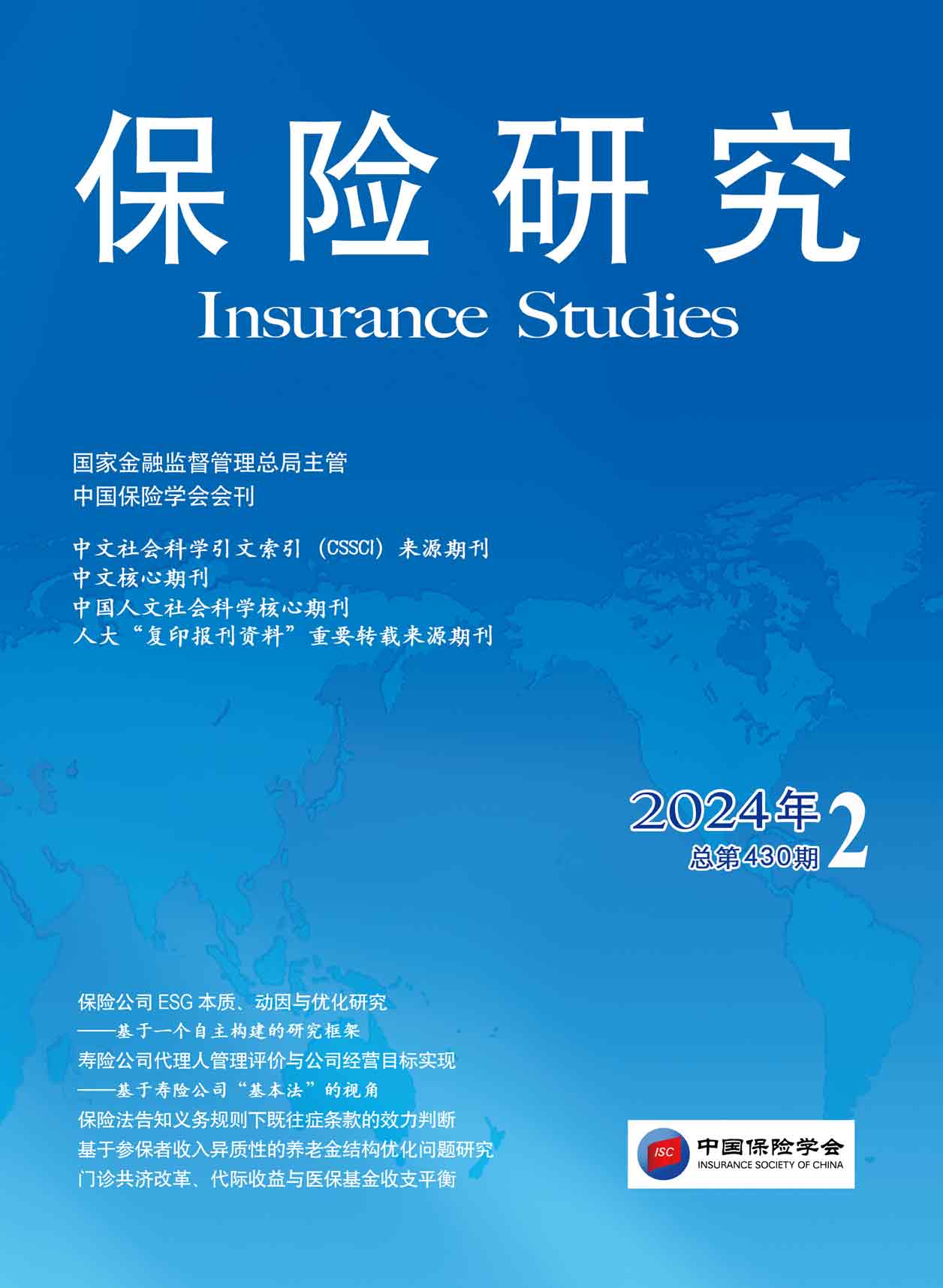
《保险研究》20240202-《资管新规缓解保险企业投资扭曲了吗?》(王桂虎、侯懿芮、郭金龙)
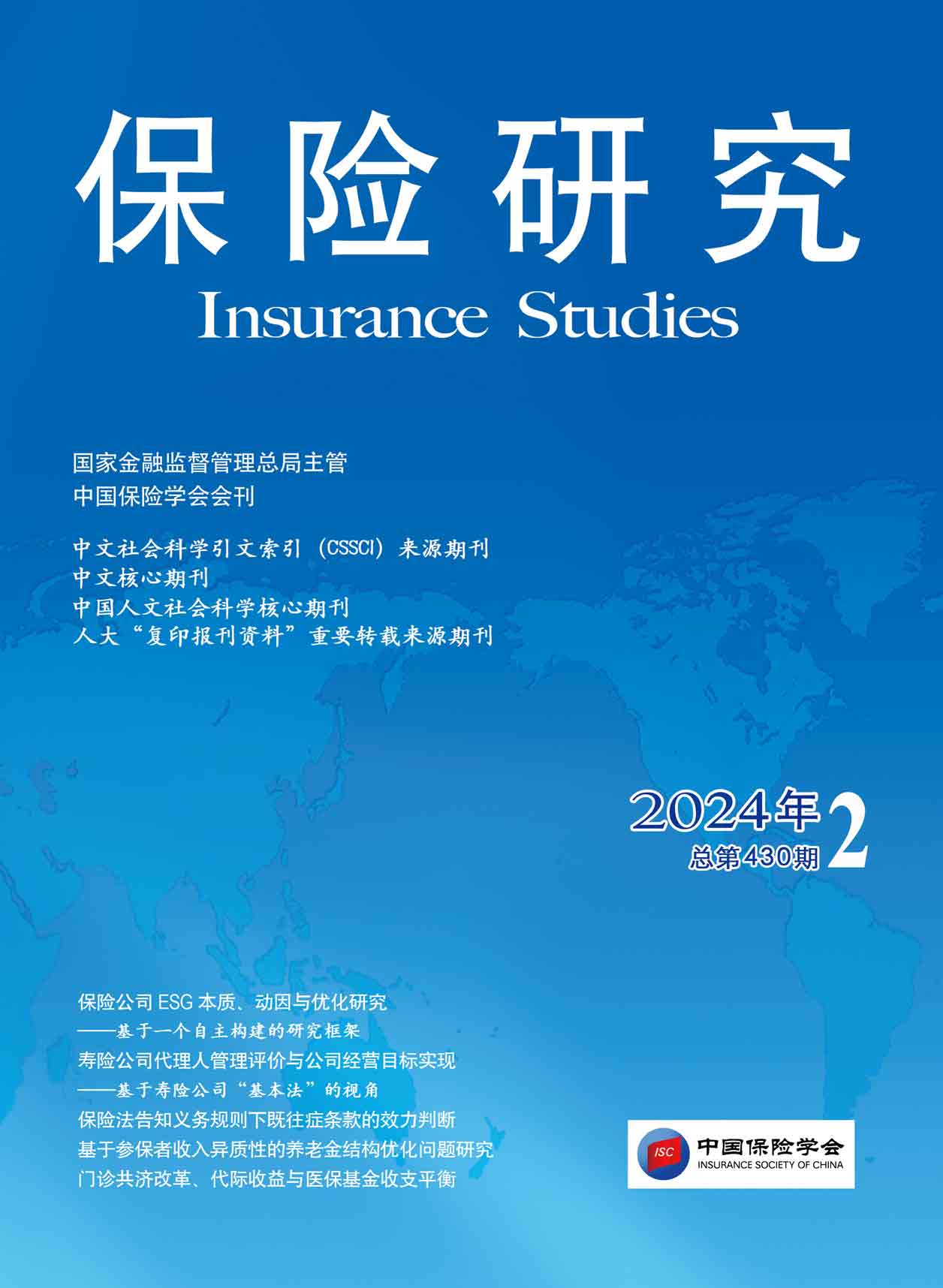
《保险研究》20240203-《寿险公司代理人管理评价与公司经营目标实现——基于寿险公司“基本法”的视角》(罗婧文、许闲)
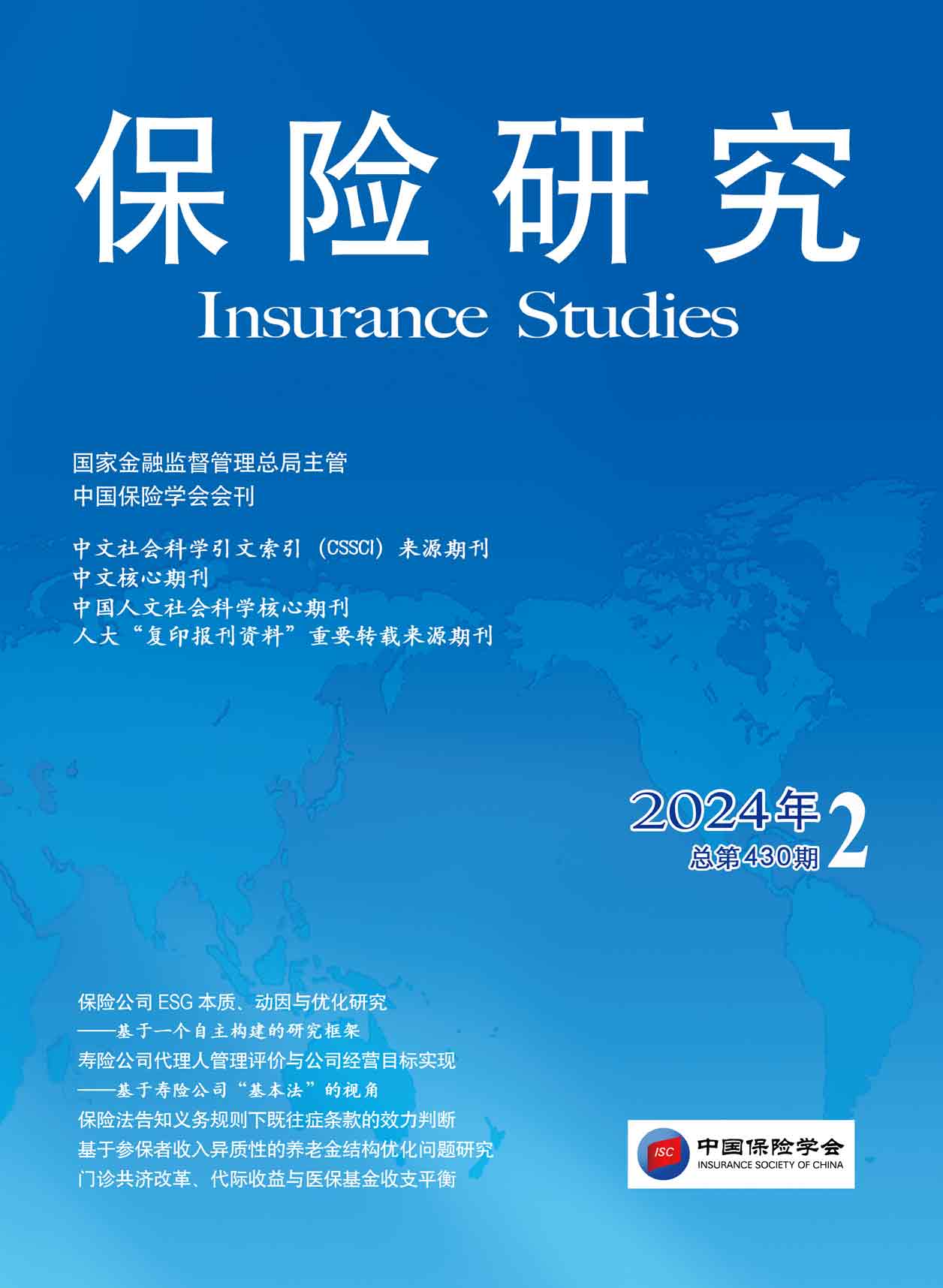
《保险研究》20240204-《数字经济对保险发展的影响研究——基于中介效能视角》(张宁、柳开)
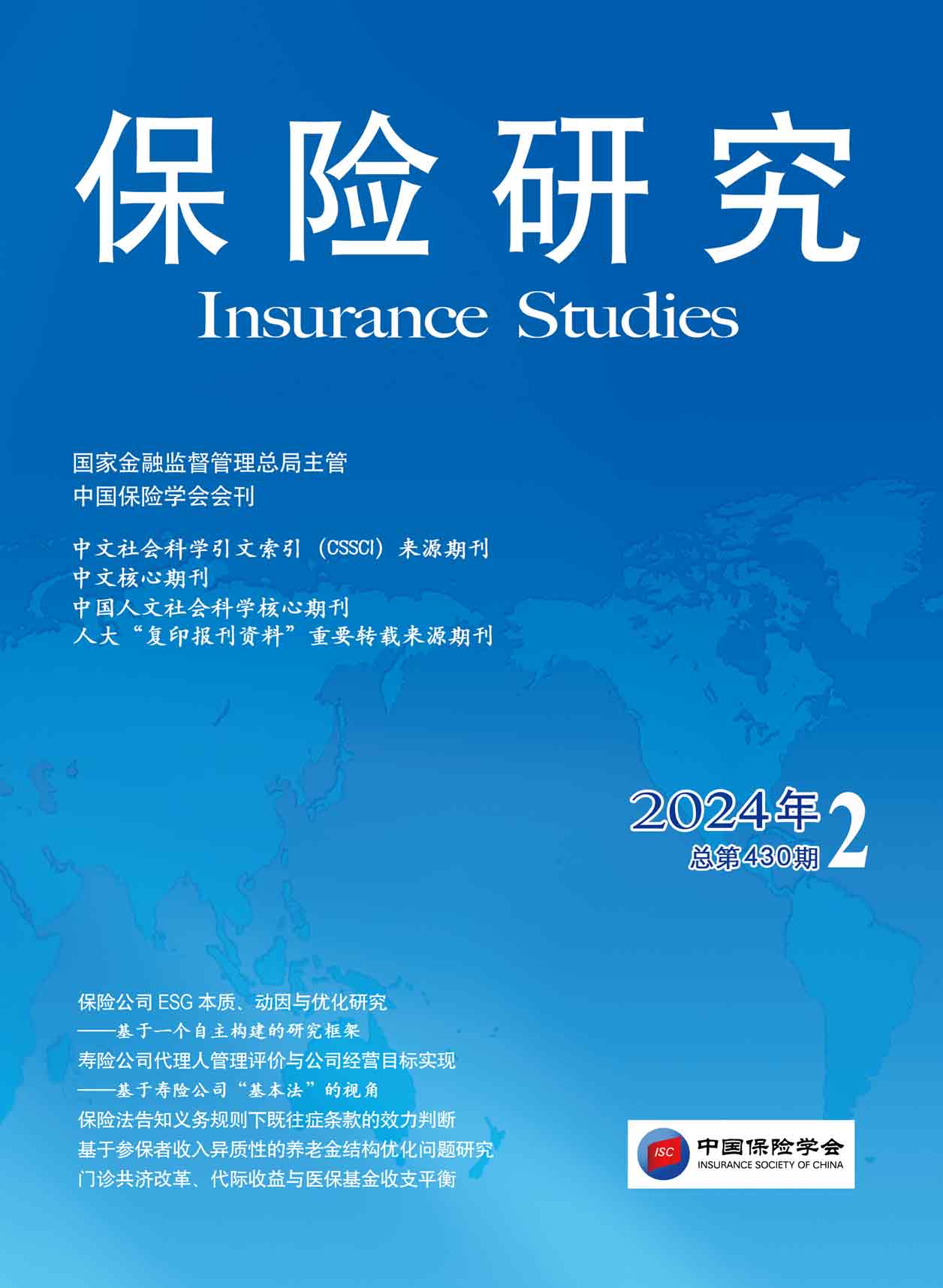
《保险研究》20240205-《重述社会保险和商业保险关系的历史渊源与发展脉络——基于法律文本的考察》(胡鑫磊)

《保险研究》20240206-《保险法告知义务规则下既往症条款的效力判断》(王家骏)
